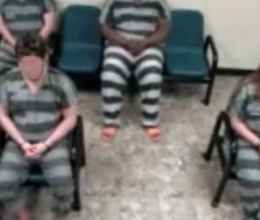
I had my first child in the custody of a county jail. I was arrested for possession of a controlled substance just after learning I was pregnant. When my son was born, I was able to spend two days with my baby in the hospital. Leaving him to go back to jail was the hardest day of my life.
After I was released and returned home, I did all the things I was supposed to do. I married my son’s father, we worked hard, we bought a home, we had two more children, and we were doing well.
Then in 2010, I had a brief drug relapse which sent me back into the criminal justice system.
I was going back to prison, but now as the mother of three children, all under the age of seven. The courts were not willing to offer alternative sentencing to me because I already had a criminal history. If it were not for some friends agreeing to move in to help with expenses and watch my children, they would have lost their home.
There are nearly 13,000 women incarcerated in Texas. A shocking 80% of these women are mothers; 64% of which are the main caretakers of their minor children. An increasing body of research has shown the detrimental results of imprisoning mothers and the long-term effects it has on children and family stability.
For instance, there is evidence that the children of incarcerated parents face more social and emotional consequences compared to children who have lost a parent due to death or divorce. The traumatic experience of losing a parent to the criminal justice system has also been linked to increased rates of children entering into the juvenile and adult justice systems themselves.
We as a society have to change the status quo, and now we have a chance to do so for the children and families in our state. A House bill, HB 1389, was filed with the Texas legislature proposing to create opportunities for a person charged with a crime to file a motion with the court asking to be considered for community alternatives to incarceration when they are the caretaker for underage children.
Similar alternative sentencing programs in other states have had impressive results: low re-offense and recidivism rates, keeping children out of foster care, and big savings for the state on child welfare and corrections costs. But most importantly, these programs kept caregivers with their children, avoiding the unnecessary trauma of separation and economic uncertainty.
If the proposed bill is turned into law, judges would be empowered to holistically consider the circumstances of the offense, the impacts incarceration would have on the children and family, and whether alternative sentencing options might be more effective than incarceration — which it often is for non-violent drug offenses. In other words, judges would be allowed to make decisions based on a person’s individual circumstances instead of issuing blanket sentences.
With this legislation, we have an opportunity to positively impact families touched by the criminal justice system, instead of simply warehousing Texan parents.
Follow the status of HB 1389 and sign-up for our e-alerts to learn how you can take action to support this legistlation and others like it.







